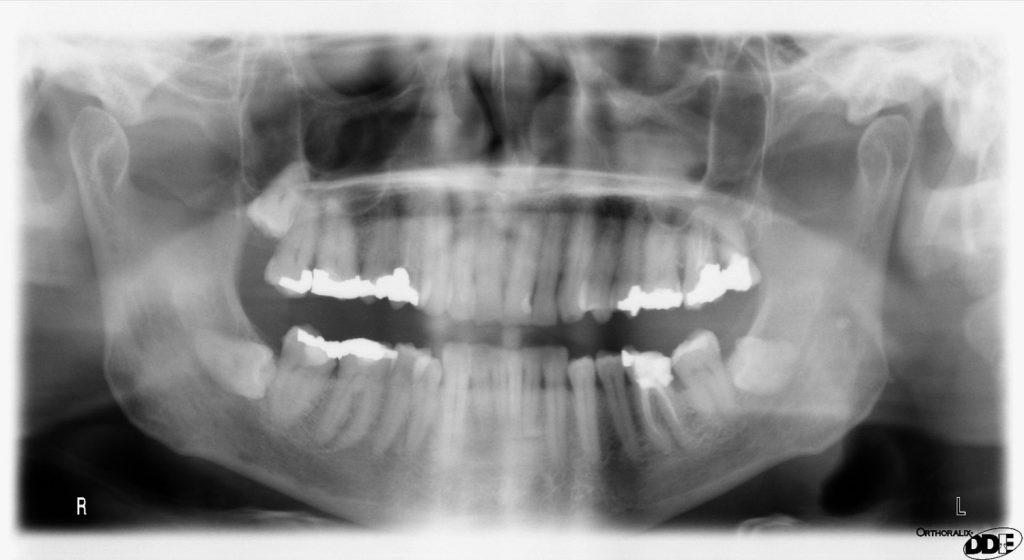Wisdom Teeth And Braces
- September 28, 2018

It’s not uncommon to begin orthodontic treatment with a long list of questions. Orthodontics is a new experience, and you will naturally want to know more about all that it entails. As time goes on, you’ll come to know more about the orthodontic process, and grow more familiar with your teeth and all the amazing things they’re capable of. By the time you’re done with braces or aligners, you’ll have acquired quite a bit of knowledge that goes beyond the basics!
However, there is one related subject you might be missing solid information on: wisdom teeth. This may not seem like a topic that is particularly relevant to orthodontics, but wisdom teeth can have a surprising impact on your oral health. At Lincoln Orthodontics, it’s not unusual for patients (or their parents) to wonder if these molars could have a negative effect on smiles that have been straightened through orthodontics. To learn more about why this worry is unfounded, and what the eruption of your wisdom teeth can mean for braces treatment, keep reading below!
Why do we have wisdom teeth?
Once upon a time, our ancestors had a diet that revolved mainly around coarse foods like meat, roots, and nuts, which required large and powerful jaws to chew and digest. As their diet began to evolve, so too did our jaws, shrinking in size to eventually hold three molars in each quadrant instead of four. For many people today, even three is too many, and their mouths just don’t have the space to allow wisdom teeth to erupt fully without issues. To be sure, this isn’t the case for everyone. For plenty of people, the wisdom teeth will come through in proper alignment with little more than some slight tenderness, requiring no further action. But our wisdom teeth grow in stages instead of all at once, offering up many chances of extended discomfort and pain until they fully erupt. To avoid any unnecessary suffering, removal of the wisdom teeth may sometimes be suggested.

Are wisdom teeth capable of shifting other teeth?
The short answer is no, but let’s explore why.
Your wisdom teeth are the last teeth to make an appearance in your mouth, usually showing in your late teens or early twenties. Around this same time, some patients will also see a slight shifting of their teeth begin, also known as relapse. Given the timing, many patients jump to the conclusion that wisdom teeth must be responsible for any drifting that occurs in this timespan. To learn more about this, The University of Iowa actually studied the possible relationship between wisdom teeth and relapse. They conducted research that involved placing sensors between the teeth of their subjects, then compared the pressure on them both with and without wisdom teeth. They concluded that was no difference between the two at all, proving once and for all that the wisdom teeth alone aren’t able to exert enough pressure on the teeth in front of them to cause them to shift.
So if wisdom teeth coming in aren’t a key factor in a smile shifting, what is? The answer is surprisingly simple: we get older. As we age, our teeth begin showing signs of wear and tear, and there’s also a natural drifting that begins to occur. This drifting can cause our teeth to begin overlapping, moving them slightly forward. This overlapping can also cause the upper teeth to press the lower teeth in towards the tongue. At this time, jaws are also still finishing up their growth, which can further force the teeth into less than desirable positions. The solution to all this shifting and drifting? Regular retainer use! As an orthodontic patient, you have no doubt heard on numerous occasions how important it is to wear your retainer once your treatment is complete. Relapse is the biggest reason we stress this point so much. Wearing your retainer exactly as directed by Dr. Willett or Dr. Harre is the single best defense you have against your teeth shifting. It’s a simple yet incredibly effective way to help keep your teeth stay as straight as possible once your orthodontic treatment has finished.
Can your wisdom teeth affect your orthodontic treatment?
If your mouth doesn’t have enough room for your wisdom teeth to erupt fully, it can put pressure on the surrounding teeth. Furthermore, if the wisdom teeth begin coming in sideways, they can catch behind the last tooth in your mouth. This painful set of circumstances is referred to as impaction, and it can lead to sensitive, swollen gums. Partially erupted teeth can also be a challenge to clean effectively, increasing your risk for recurrent infections and damage to the adjacent healthy molars.
If your wisdom teeth happen to start erupting during the course of your orthodontic treatment with us, you should be able to continue easily and without interruption. Wisdom teeth can be removed while wearing braces if necessary, but if yours come through with no apparent problems, it’s unlikely that removal would be recommended. That said, your general dentist or an experienced orthodontist like Dr. Willett or Dr. Harre will be able to tell how your wisdom teeth are coming through by taking a detailed x-ray of your mouth. The results of that x-ray will be considered along with the impact wisdom teeth are having on the rest of your mouth. At that point, wisdom tooth removal may be recommended.

Lincoln Orthodontics has the wisdom to give you peace of mind
For over twenty years, Lincoln Orthodontics has been offering families in Lincoln and the surrounding communities an orthodontic experience that is comfortable, positive, energetic, and rewarding. Our team is committed to providing you with a practice that makes you feel welcome and at home the moment you walk through our door. From your first appointment to your last, we want you to feel valued, heard, and respected. If you’re worried about how your wisdom teeth may impact your orthodontic treatment or overall oral health, get in touch! We go the extra mile to make sure your questions are answered and your concerns are addressed to the best of our ability. Your smile is important to us, and so are you!


